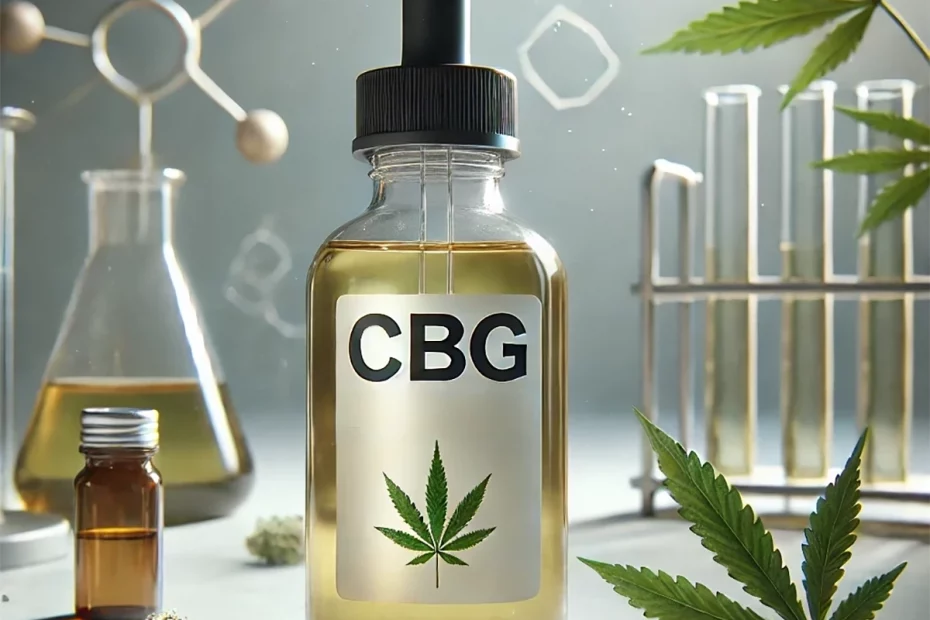How is CBG Different from CBD?
Cannabigerol (CBG) is one of over 100 cannabinoids found in marijuana aka cannabis. While it may not be as well-known as CBD (short for “cannabidiol”), CBG is starting to gain attention in its own right. It is sometimes called the “mother of all cannabinoids” due to acting as a precursor to several other cannabinoids, including CBD and THC.
The key difference between CBG and CBD lies in their chemical structure and how they interact with the body. Although both are non-psychoactive and won’t get you “high” like THC, they impact the body in different ways. CBG binds directly to the CB1 and CB2 receptors in the brain, which can give it a stronger effect on inflammation, mood regulation, and neuroprotection. In contrast, CBD indirectly influences these receptors, resulting in more subtle effects.
Potential Benefits of CBG: What the Research Shows
Recent studies have started to explore the therapeutic potential of CBG, although the research is still in its early stages compared to CBD. Early findings suggest that CBG may offer a wide range of benefits, such as:
- Inflammation: Like CBD, CBG has demonstrated anti-inflammatory effects in studies, which could make it useful for treating conditions like irritable bowel syndrome (IBS) and other inflammatory disorders.
- Glaucoma: CBG may help reduce intraocular pressure, making it potentially beneficial for treating glaucoma. Some research even suggests it could be more effective than THC for this purpose, without causing the psychoactive effects.
- Neurodegenerative Diseases: CBG is being investigated for its neuroprotective properties, which means it may help in preventing or slowing diseases like Huntington’s or Alzheimer’s.
- Cancer: Early laboratory studies have shown that CBG might inhibit the growth of cancer cells, particularly in colon cancer. While promising, more research is needed to fully understand these effects.
- Anxiety and Depression: Preliminary findings indicate that CBG may help reduce anxiety and depression. According to a 2024 study by Washington State University, CBG offers unique anxiety-relieving effects that could provide more options for those seeking relief beyond what CBD can offer.
How is CBG Used?
CBG is increasingly being incorporated into health and wellness products. Companies like Fab Nutrition CBD also sell it. Here are some of the common ways you might find CBG:
- CBG Oil: Oils are one of the most popular forms of CBG, taken sublingually (under the tongue) for fast absorption into the bloodstream. CBG oils are often used for their calming and anti-inflammatory effects. Organic CBG products are especially popular among those who value purity and potency, as they are grown without artificial additives.
- CBG Capsules: Capsules offer an easy way to incorporate CBG into your daily routine, especially for those who prefer a consistent dosage each time. These are ideal for users who want a tasteless and convenient option.
- Topicals with CBG: Creams and balms infused with CBG are used for targeted relief of pain and inflammation, often applied directly to problem areas like sore muscles or joints.
- CBG Gummies: Gummies infused with CBG offer a tasty and convenient method of consumption. Products like Sativa Gummies with CBG combine the energizing effects of sativa strains with CBG’s therapeutic benefits, making them appealing for those who prefer an alternative to oils or capsules.
Conditions CBG May Be Helpful For
While research is still in its infancy, there are several conditions that may benefit from CBG’s unique properties:
- Chronic Pain: Due to its interaction with the endocannabinoid system, CBG may help manage chronic pain by reducing inflammation and modulating pain-signaling pathways.
- Anxiety and Stress: CBG has been shown to reduce anxiety and stress in early trials. This makes it a potential alternative for individuals who find that CBD alone doesn’t meet their needs.
- Gut Health: CBG’s anti-inflammatory effects may also make it effective for treating digestive conditions like Crohn’s disease and IBS, providing relief from symptoms like pain, cramping, and bloating.
Legal Considerations and Age Restrictions
Just like CBD, CBG is non-psychoactive and federally legal in the United States as long as it is derived from hemp containing less than 0.3% THC. However, state laws regarding CBG can vary, so it’s important to check local regulations before purchasing or using CBG products.
Age restrictions also apply to most CBG products, which are generally available only to individuals who are 18 or 21 years old, depending on state law. Some online retailers require age verification at checkout to ensure compliance. We highly recommend FabCBD for a convenient experience.
Conclusion: The Growing Popularity of CBG
As interest in CBG continues to grow, more research and clinical trials will likely unveil new therapeutic uses for this cannabinoid. Whether you’re seeking relief from anxiety, inflammation, or chronic pain, CBG-infused products like oils, capsules, and gummies are becoming increasingly accessible and popular in the health and wellness space.
If you are considering adding CBG to your routine, always consult with a healthcare provider, especially if you have underlying health conditions or are currently taking medication. When trying new substances, be sure to do your own research especially on emerging/new products!
Have you tried CBG? If so, let us know how it worked for you in the comments below!

